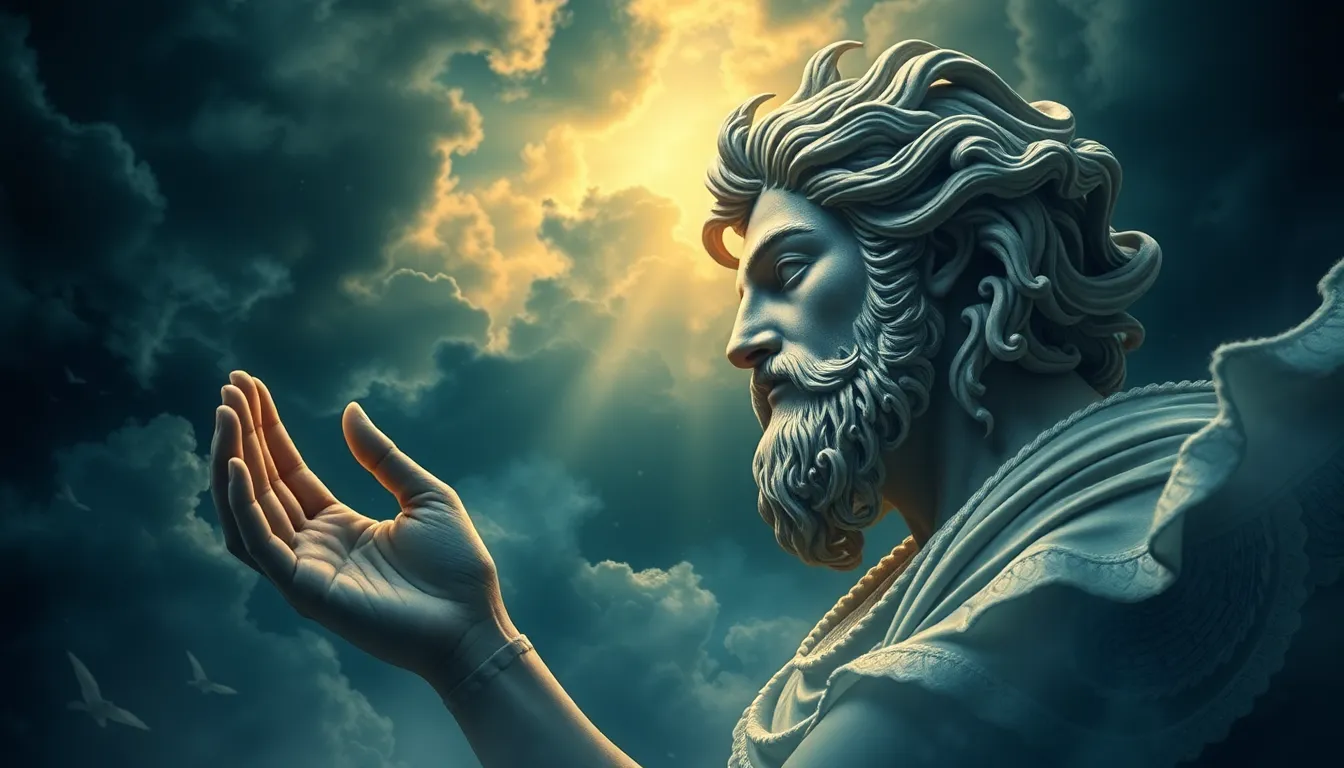The Tragic Choices of Orpheus: What We Can Learn from His Journey
I. Introduction
Orpheus, the legendary musician of ancient Greek mythology, has captivated audiences for centuries with his enchanting melodies and poignant tale. His story is not just one of love and loss, but also a profound exploration of the human experience, particularly the choices we make in times of despair. This article aims to delve into the themes of choice, love, and loss as embodied in the myth of Orpheus, highlighting the lessons we can glean from his tragic journey.
II. The Legend of Orpheus
Orpheus was the son of Apollo and Calliope, the Muse of epic poetry. Renowned for his musical talents, he could charm all living things with his lyre. His music was so powerful that it could even soothe wild beasts and coax trees and rocks to dance. However, his most profound love was for Eurydice, a beautiful nymph. Their love was cut short when Eurydice was bitten by a snake and died shortly after their wedding, plunging Orpheus into deep sorrow.
III. The Descent into the Underworld
Determined to retrieve his beloved Eurydice, Orpheus resolved to descend into the Underworld. Armed with his lyre, he ventured into the realm of the dead, where he faced the formidable guardians, including Cerberus, the three-headed dog. His music moved even Hades, the god of the Underworld, who allowed Orpheus to take Eurydice back to the world of the living, under one condition: he must not look back at her until they reached the surface.
The Underworld itself symbolizes both despair and hope. It represents the depths of grief and loss that Orpheus must navigate, yet it also serves as a testament to his love and determination. His journey highlights the struggle between the desire to hold on to what we love and the harsh realities of life and death.
IV. The Choice of Trust
As Orpheus and Eurydice made their way back, Orpheus faced a pivotal moment of choice: to trust in the words of Hades and not look back at Eurydice, or to succumb to doubt and despair. This moment encapsulates the theme of trust and faith in relationships.
- Trust: Orpheus’ trust in Eurydice and in the promise made by Hades was essential for their reunion.
- Faith: His faith was tested as he walked in uncertainty, with the haunting fear that he might lose Eurydice forever.
This choice speaks to the heart of many relationships, where trust is vital for navigating challenges and uncertainties.
V. The Consequences of Choices
Tragically, Orpheus’ choice to look back at Eurydice resulted in immediate consequences. As he turned to catch a glimpse of her, she vanished back into the Underworld, lost to him forever. This act of looking back symbolizes a lack of faith in the future and the pain of regret.
The broader implications of choices in life and relationships are profound:
- Every choice we make can lead us down a different path.
- Trusting our instincts and the words of those we love is crucial.
- Regret can haunt us when we act out of fear rather than faith.
VI. Themes of Grief and Acceptance
In the aftermath of losing Eurydice a second time, Orpheus’ response to grief was deeply poignant. He wandered the earth heartbroken, refusing to engage with the world around him. His music became a lament, expressing the depth of his sorrow.
Orpheus’ journey through grief teaches us valuable lessons:
- The inevitability of grief: Loss is a part of life that we all must face.
- Coping with loss: Finding healthy outlets for our grief, like art and music, can aid in the healing process.
- Acceptance: Ultimately, acceptance of loss is a difficult yet necessary step towards moving forward.
VII. The Legacy of Orpheus’ Choices
Orpheus’ myth has profoundly influenced art, literature, and culture throughout history. His story has inspired countless works, from operas to paintings, underscoring the universal themes of love and loss. The tragic choices he made resonate with audiences, reminding us that:
- Our choices shape our destinies.
- Love can lead us to make sacrifices and take risks.
- We must navigate the complexities of trust and faith in our relationships.
VIII. Conclusion
The journey of Orpheus serves as a powerful reminder of the intricate relationship between love, choice, and loss. Through his tragic tale, we learn that:
- Trust and faith are essential in relationships.
- Choices can have lasting consequences, shaping our paths in life.
- Grief is an inevitable part of love, and acceptance is key to healing.
As we reflect on Orpheus’ journey, we are encouraged to apply these lessons in our own lives, to make choices that honor our relationships, and to navigate the complexities of love with courage and faith.




